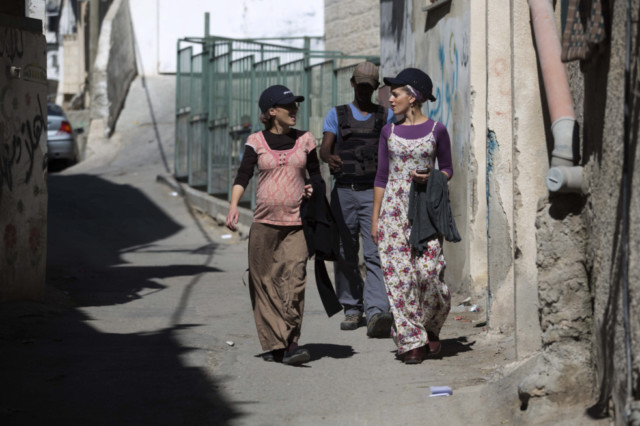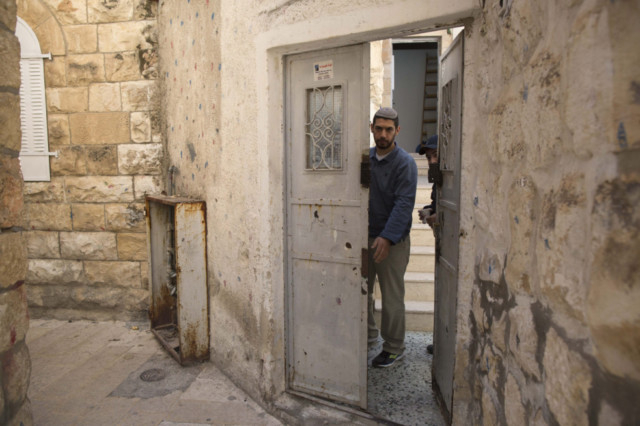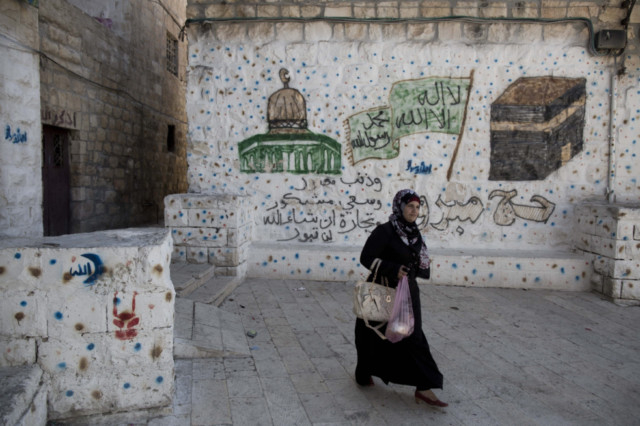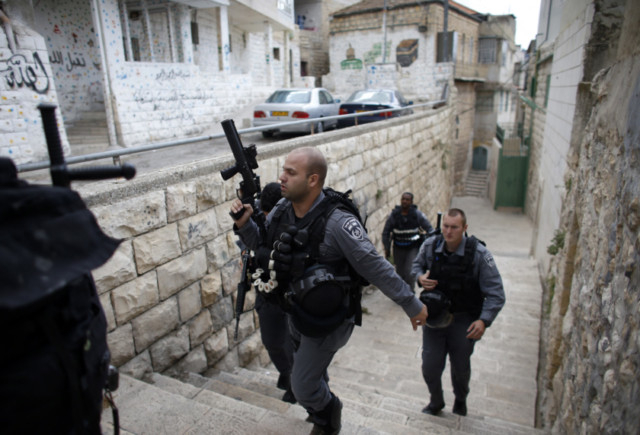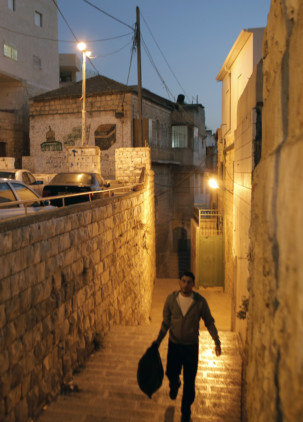
Occupied Jerusalem: By fair means or foul, Jewish colonists are notching up property gains in the heart of occupied East Jerusalem through a series of shady deals involving frontmen or straw companies.
The process by which such properties are acquired is shrouded in mystery, with the new Jewish occupants often moving in under the cover of darkness to avoid a major confrontation with the native Palestinian residents.
The latest controversial acquisitions took place in Silwan, a densely populated Palestinian neighbourhood on a steep hillside flanking the southern walls of occupied Jerusalem’s Old City.
In the past three weeks, hardline Jewish colonists have moved into 35 apartments there, sparking anger and consternation among Palestinians who vehemently oppose such moves as a hostile attempt to Judaise Silwan.
Some were allegedly acquired fraudulently, and others legally.
Jewish groups buying up property in the heart of Arab neighbourhoods is an explosive political issue because it touches on the future of occupied east Jerusalem, which the Palestinians want as capital of a future state.
The groups are looking to establish a contiguous Jewish presence in the area, thereby preventing any future division of the holy city under a peace deal with the Palestinians.
One of the structures taken over in Silwan this week was a three-storey building owned by the Al Rajabi family, which had been looking to sell the property and its adjoining land.
Because the neighbourhood is very close to the Old City and Al Haram Al Sharif, the third-holiest site in Islam, the family was looking for a Palestinian buyer.
One day, a man whose family is known for its commitment to the Palestinian cause approached them.
“He said he wanted to buy it for his cousin who lives in Dubai,” Zuhair Al Rajabi said, explaining how they agreed to sell it for 450,000 Jordanian dinars (Dh2.3 million).
‘Hate myself’
Today he realises it was a mistake.
“I hate myself for selling, people are accusing us of knowingly selling” to the colonists, he said.
On Tuesday, his family paid for an advertisement in the main Palestinian newspaper showing the purchase agreement with the name of the buyer and insisting they had no knowledge of the true nature of the sale.
“We should have been more careful but we cannot take it back. The [colonists] are like a cancer which spreads through the body until it dies,” Al Rajabi said.
Selling land to Israeli colonists is viewed as treason by the Palestinians and carries a penalty of life imprisonment with heavy labour. There have been several cases in which the perpetrators have been killed.
Khalil Tufakji, a Palestinian cartographer, says right-wing groups use a variety of methods to obtain property in occupied east Jerusalem.
“Either they use the Israeli ‘absentee property’ law or they do it through agents,” he said, referring to legislation adopted by the Israeli regime in 1950, which allows the confiscation of land owned by Palestinians who fled or were forced out during the 1948 war.
The agents are Palestinian straw men who carry out the purchase on behalf of right-wing groups in a bid to grant a legitimacy to the transaction before the courts, he said.
“There are more and more of these agents who are operating in [occupied] east Jerusalem and in areas close to the Green Line,” said Ahmad Ruweidi, adviser on (occupied) Jerusalem affairs to Palestinian president Mahmoud Abbas.
The Green Line is viewed by the international community as the de facto boundary between the Israeli regime and the West Bank and the Gaza Strip.
Ruweidi said there was a growing wave of public anger against such middlemen, who are understood to receive huge sums of money for their services.
“There is huge public pressure against such agents with people waging campaigns on social media and spreading their names and photos,” he said.
Other transactions are done through little-known foreign firms, which have been denounced by the Palestinians as shell companies.
But their methods of operation are a closely guarded secret.
Avi Segal, an attorney who represents international companies that invest in real estate in occupied Jerusalem, refused to divulge methods of operation for purchasing property for Jewish groups in occupied east Jerusalem.
“All of the deals in the areas …were carried out legally and legitimately, that’s it,” he said.
Under terms of the so-called Clinton parameters for a political settlement in occupied Jerusalem, the eastern part of the city would be divided along ethnic lines, with Israel having sovereignty over Jewish colonies, and the Palestinians gaining sovereignty over Arab neighbourhoods.
Increasing Jewish presence in densely populated Arab areas would stack the balance in the Israeli regime’s favour, Tufakji said.
Today, around 500 colonists live in Silwan among a population of 45,000 and the recent acquisitions have triggered a flood of protest among the Palestinians as well as from abroad.


